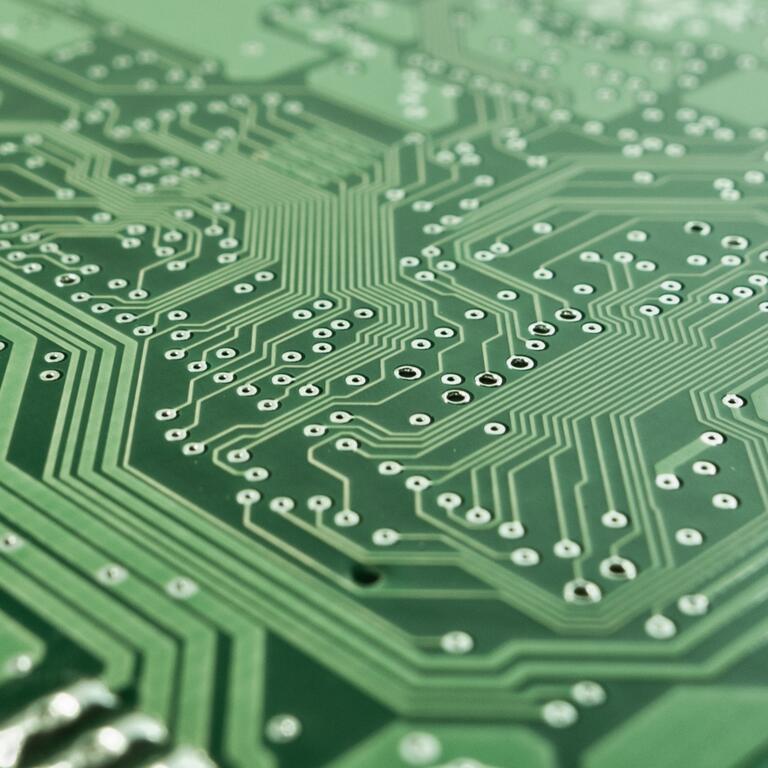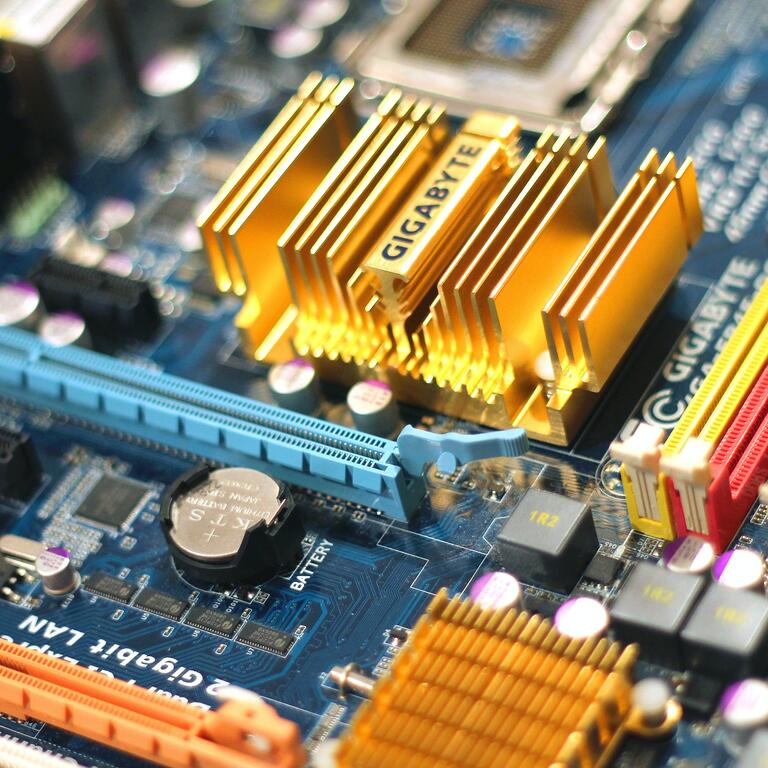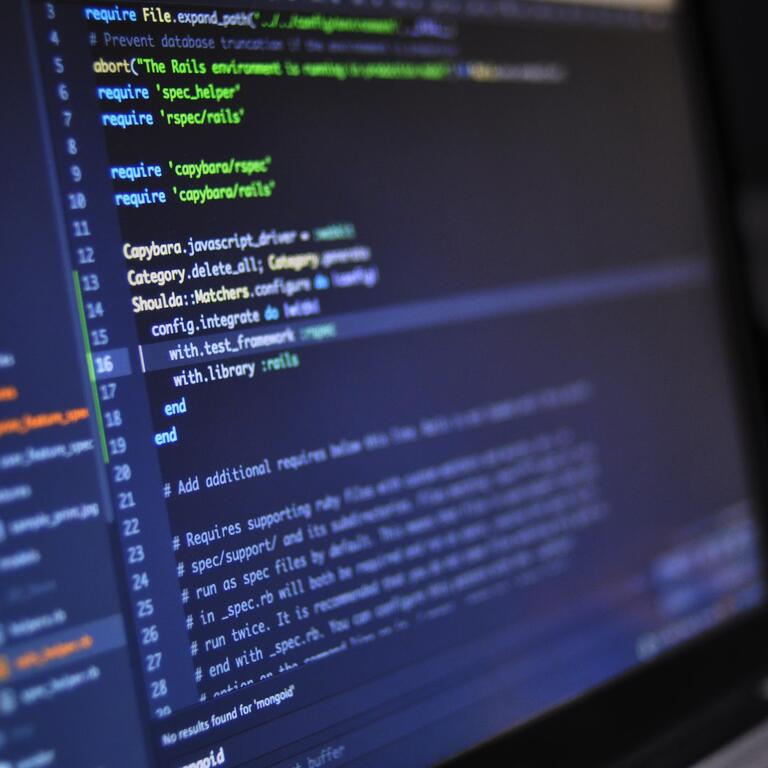
Undergraduate Curriculum
Computer Engineering Coursework
Our Computer Engineering program is accredited by the Engineering Accreditation Commission of ABET, so you can feel confident knowing that you're receiving an education that meets specific high standards. Learn more about our accreditation here.
As a Computer Engineering student, you'll have access to courses from both our Computer Science and Engineering and Electrical and Computer Engineering departments. In total, our CEN curriculum provides knowledge and skills in six areas, helping you make the connection between CEN applications within interdisciplinary industry sectors. Explore our course options below:
-
Humanities and Social Sciences
A major goal of engineering is to contribute to the welfare of society, which best happens when students have an understanding of the Humanities and the Social Sciences. This comes from the study of a variety of subjects: from world history and political and economic systems to ethnic, cultural, and religious diversity and beyond.
Humanities Course Requirements
- (1) course in World History
- (1) course in Fine Arts, Literature, Philosophy, or Religious Studies
- (1) additional course in Humanities
Social Sciences Course Requirements
- (1) course from either Economics or Political Science
- (1) course from Anthropology, Psychology, or Sociology
- (1) additional course in Social Science
Ethnic Studies Course Requirements
- Can be incorporated into the above, or stand alone as an additional course
-
Basic Sciences, Mathematics, and Statistics
Our curriculum is built on a foundation of courses in mathematics and the basic sciences, which are taken in the first two years at UCR.
Course Requirements
- Physics 40A, 40B and 40C
- (1) Chemistry course
- (1) Biology course
- Math 9A, 9B, 9C, 10A and 10B
- Stat 155
- Math 112
- Math 113
-
Engineering Science
Computer Engineering is a rapidly evolving field. A successful lifelong computer engineering career requires a solid foundation in both Computer Science and Electrical Engineering.
Course Requirements
- EE001A and EE001B
- CS010, CS012 and CS014
- EE100A and EE100B
- EE110A and EE110B
- CS/EE120A and CS/EE120B
- Either CS122A or EE128
- CS141
- EE141
- CS161
- CS181
- Either of CS160 or CS153.
Computer Engineering students will select twenty credits of elective courses. The electives must include at least one sequence of two CS or EE classes from either CS or EE, as well as either EE175 A/B or CS179.
Catalog descriptions of CSE and EE courses can be found in the Course Catalog.
-
Engineering Design
We provide CEN students with both a solid engineering science background as well as practical design experience. With this knowledge, our students develop the skills, intuition and adaptability to succeed in the future of engineering.
To culminate their design experience, CEN students take a capstone course where they utilize their design knowledge to address a meaningful design problem.
Capstone Course Options
- CS179 or EE175A/B. CS179 (a one-quarter course)
- EE175A/B (a two-quarter sequence)
At any time during a student's career, they are invited to participate in a circuit prototyping class. This is a non-credit course that teaches soldering, wire wrapping, SMT methods, and printed circuit board (PCB) design and fabrication.
-
Laboratory Experience
Our program is designed to be lab-intensive, giving students the chance to put learned concepts into play in the laboratory. Currently 28 of the 29 CSE courses and 23 of the 27 EE courses have an associated lab component. The labs include a mixture of computer and hardware exercises.
-
Computer Skills
Effective use of computers, in the design and analysis of engineering systems, is one of the most important skills required of today's computer engineers. CEN students gain three aspects of computer experience:
- Computer programming: An introduction to computer programming is given in CS 10 and CS 12 (Introduction to Computer Science I and II). These courses provide a working knowledge of structured programming in C++. Additional CS courses teach techniques for advanced program development, testing and validation in a variety of areas.
- Computer hardware and interface: Computer architecture, processor design, hardware/software co-design, and hardware interfacing are covered in CS 61, CS 161, EE/CS120A, EE/CS120B, CS 122A and EE128.
- Use of software packages: The industrial standard MATLAB is used throughout all EE courses. By graduation, students are proficient in the use of MATLAB as an engineering design and analysis tool. The industrial standard PSPICE package is used in all electronic and circuit design classes. The industrial standard XILINX Foundation Tools are use in the 120A/B sequence of logic and digital design classes


